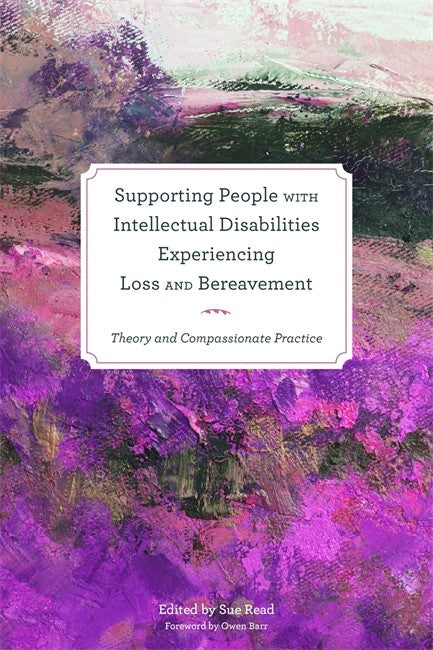Foreword by Professor Owen Barr. Introduction. Sue Read. Part I: Theoretical Perspectives. 1. Loss in the Caring Context. Sue Read. 2. Living with Loss. Sue Read and Mary Davies. 3. Grief and Mourning. Sue Read. 4. Complicated Grief. Philip Dodd and Noelle Blackman. 5. Spirituality. Bill Gaventa. 6. Psychological Support in Health Care. Helena Priest. Part II: Contemporary Practice Issues. 7. Loss and Resilience. Linda Machin. 8. Working Creatively to Facilitate Loss. Sue Read. 9. Caring Fatigue. Ted Bowman. 10. Supporting Professsional Carers. Michele Wiese. 11. Advocacy, Empowerment and Communication. Patsy Cocoran. Part III: Specialist Contexts and Considerations. 12. Loss, the Family and Caring. Mike Gibbs. 13. Loss and People with Autism. Rachael Forrester-Jones. 14. Loss in Forensic Environments. Ben Hobson, Sue Read and Helena Priest. 15. Children and Loss. Erica Brown. 16. Loss and End of Life Care. Karen Ryan, Phil Larkin and Suzanne Guerin. 17. Living with Shattered Dreams. Mandy Parkes. 18. Research, Inclusivity and Marginalised Groups. Sue Read. Conclusion. Sue Read. References. Index.
Request Academic Copy
Please copy the ISBN for submitting review copy form
Description
Editor Sue Read has assembled a strong international team of authors from the UK, Ireland, USA and Australia that includes researchers, clinicians, a parent and a woman with an intellectual disability, so providing multiple perspectives on key issues. The primary focus is on people with intellectual disabilities, but importantly several chapters focus on the needs and experiences of caregivers (both family members and disability service staff). The book is characterised by empathy and compassion, with a consistent emphasis on similarities not differences. Issues are contextualized through analysis of theories about death and bereavement, as well as through emphasising the spectrum of responses to death and dying. This is a practical book with information about assessment and instruments, as well as practice tips. Most chapters include an individual story or detailed case study. Without exception these are very sensitively told and of immense assistance in understanding and responding to the issues in human terms. Those providing personal or professional support to a person with an intellectual disability who has experienced loss will find this book a rich and rewarding source of information, practical ideas and inspiration.

